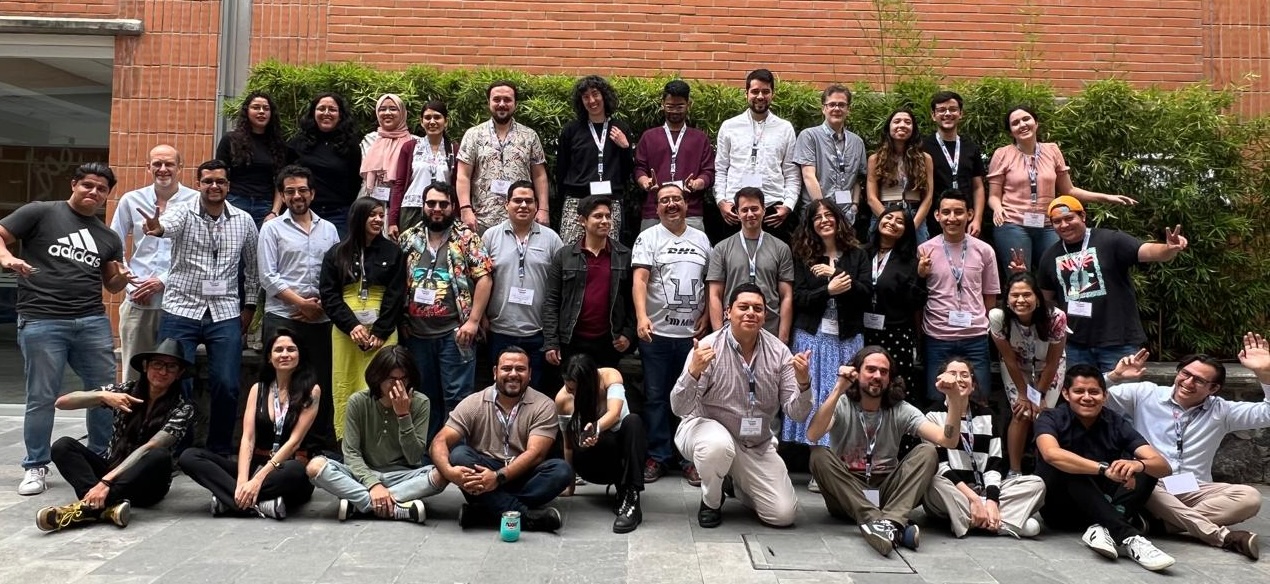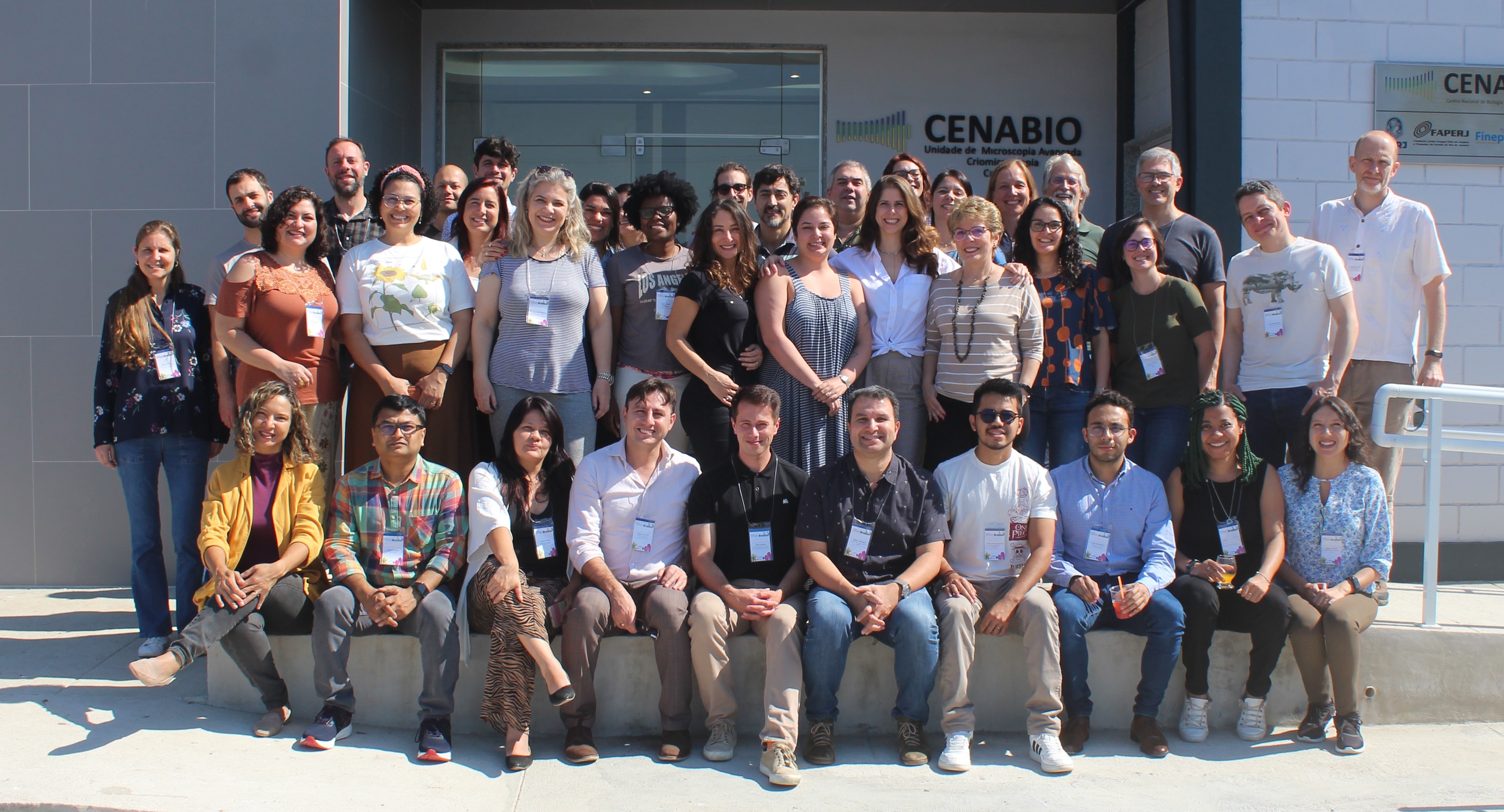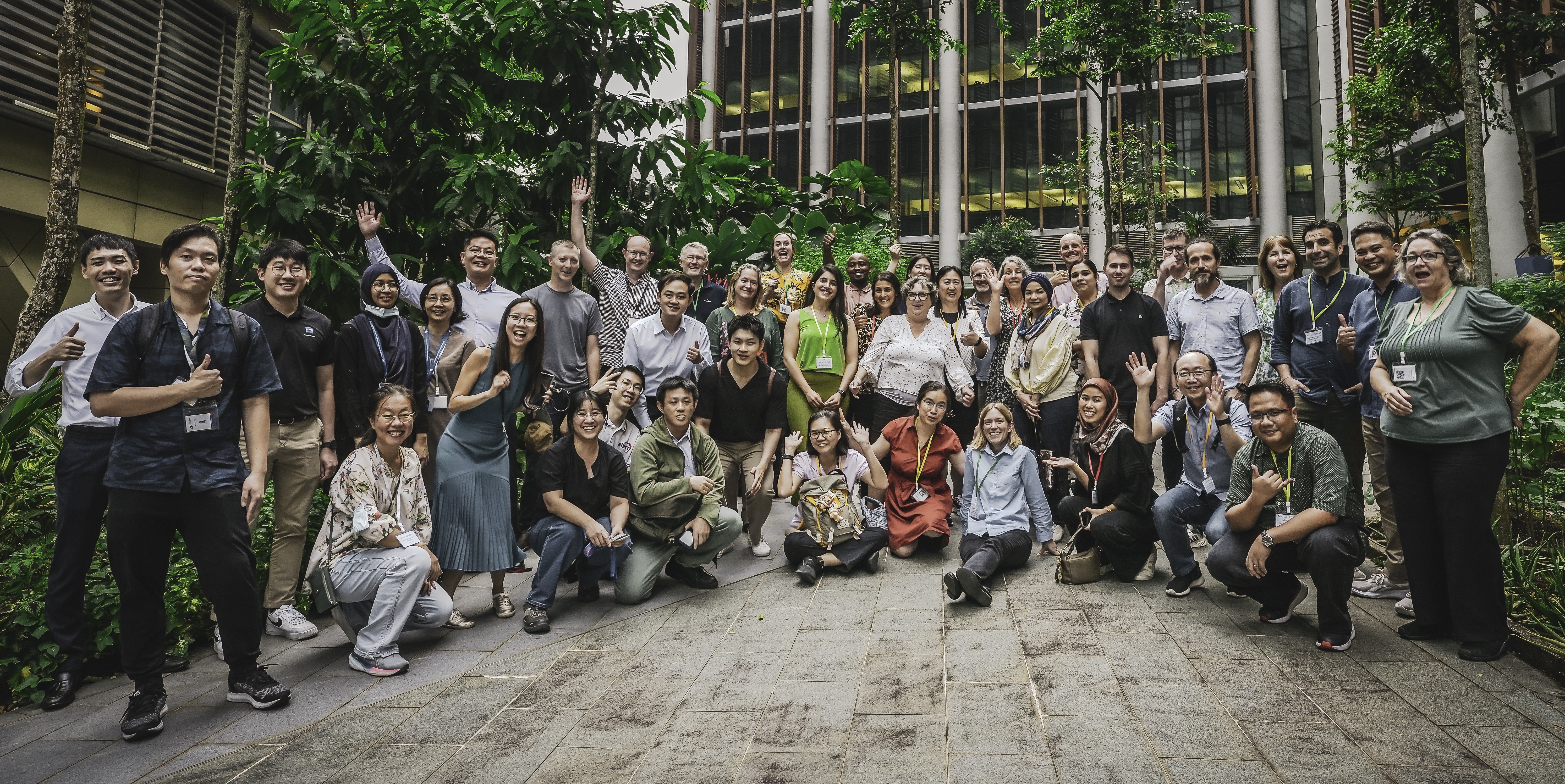Staff scientist positions in imaging facilities, infrastructures, or research labs have become increasingly appealing career options: These roles offer the unique opportunity to work closely with advanced imaging instruments while contributing to diverse and impactful research. Over the last two decades, the availability of facility management positions has expanded, opening exciting career pathways but also presenting new challenges: How can scientists transition into management roles effectively? How can imaging facilities be managed to enhance user experience and operational excellence?
(read in pdf format here: GBI Training Recap 2024.pdf)
Global BioImaging has been addressing these needs by offering tailored training programs for imaging scientists in support roles across the globe. In 2024, we organized training courses in Mexico, Brazil, and Singapore, each focusing on key aspects of image data management and facility management and addressing region-specific needs. Led by GBI’s Training Program Manager, Gleb Grebnev, in collaboration with regional partners, these programs not only built individual skills but also created a ripple effect, as participants—many of whom are educators and trainers themselves—continue to disseminate their knowledge within their own institutions.
Enhancing Image Data Management in Mexico
Our first training of 2024 took place in Mexico, co-organized with the Laboratorio Nacional de Microscopía Avanzada(LNMA), a GBI partner organisation in Mexico. This week-long course centered on image analysis and reuse of image data using repositories, equipping participants with essential technical skills and insights.
Topics covered included:
- Concepts in Image Analysis: Fundamentals necessary to efficiently use advanced methods
- Hands-On Software Training: Using ImageJ/Fiji through graphical user interfaces (GUIs)
- Programming Skills: Introduction to ImageJ macro language and Python programming, also for using Napari software
- Data reuse: Detailed exploration of the BioImage Archive, a free and publicly accessible image repository for publishing and reusing images
- FAIR Principles and Metadata: Exploring the FAIR principles and REMBI standards for biological images to enhance reusability of microscopy data
Participants had the chance to work with the BioImage Archive, a publicly available online repository for biological images, and gained practical insights into enhancing their data workflows. Beyond the technical training, the course facilitated invaluable networking opportunities through planned social events, fostering a sense of community among participants and faculty. Visit our webpage (https://tinyurl.com/gbi-lnma) for more details regarding the course organization, speakers and program.

Image credit: Yuriney Abonza Amaro, Instituto de Biotecnología, Universidad Nacional Autónoma de México
Strengthening Facility Management in Latin America
Two months later, we moved to Rio de Janeiro, Brazil, for a course focused on facility management, co-organized with CENABIO, a multi-user imaging facility at the Federal University of Rio de Janeiro and a member of the Latin America BioImaging (LABI) network.
This comprehensive program addressed critical aspects of facility operations, including:
- Managing Imaging Facilities: Setting-up and operating imaging core facilities across North America, South America, and Europe
- Sustainability Models: Developing effective cost recovery strategies, including collaborations with industry partners
- User Training and Workshop Programs: Highlighting success stories in developing training programs in North and South America
- Pedagogy for User Training: Applying scientic principles of pedagogy to enhance user training and workshop programs
- Quality Control in Imaging and International Standards: Introducing ISO standards for imaging facilities and discussing their benefits
By targeting these facility management topics, the course equipped participants with the tools to create sustainable, high-quality imaging environments. The collaboration with CENABIO and LABI also underscored the importance of regional networks in advancing imaging sciences. Visit our webpage (https://tinyurl.com/gbi-brazil) for more details regarding the course organization, speakers and program.

Image credit: Marcia Attias, Instituto de Biofisica Carlos Chagas Filho, Universidade Federal do Rio de Janeiro
Expanding Career Perspectives in Southeast Asia
Our final course of the year brought us to Singapore, where we partnered with the GBI partner infrastructure SingaScopeto explore advanced topics in facility management. Held at the A*STAR Microscopy Platform in Biopolis, this course was tailored for imaging core facility professionals. It provided a deep dive into many topics, for example:
- Facility Operations: Facility design, operation, budgeting, and cost recovery
- Career Development: Exploration of career paths in imaging cores as well as integrating scientific expertise with management training, such as Master of Business Administration (MBA) principles
- Training and Education: Leveraging educational tools like Microtutor, the Global BioImaging Virtual Training Plat form, and train-the-trainer methodologies increase access and scope of training
- Maintenance and Quality Control: Ensuring operational excellence in cutting-edge facilities using reservation tools, ISO standards
- Global Perspectives: Insights into imaging cores across the globe including Australia, Southeast Asia, and beyond
This course highlighted the growing career potential in facility management and the importance of international collaboration. Through a mix of seminars and moderated sessions, participants gained practical skills and built strong global connections, reinforcing Global BioImaging’s commitment to fostering innovation in imaging sciences. Visit our webpage (https://tinyurl.com/gbi-singascope) for more details regarding the course organization, speakers and program.

Image credit: SingaScope
Conclusion: Multiplying Impact Across the Globe
The 2024 training courses reflect Global BioImaging’s mission to empower imaging scientists and advance global excellence in imaging facilities.
By addressing region-specific challenges, fostering collaboration, these training courses strengthen the global imaging community. As we look ahead to 2025, we remain committed to driving innovation and supporting the imaging scientists who are at the heart of scientific discovery.
This article was written by Sophie Winter from Global BioImaging.
